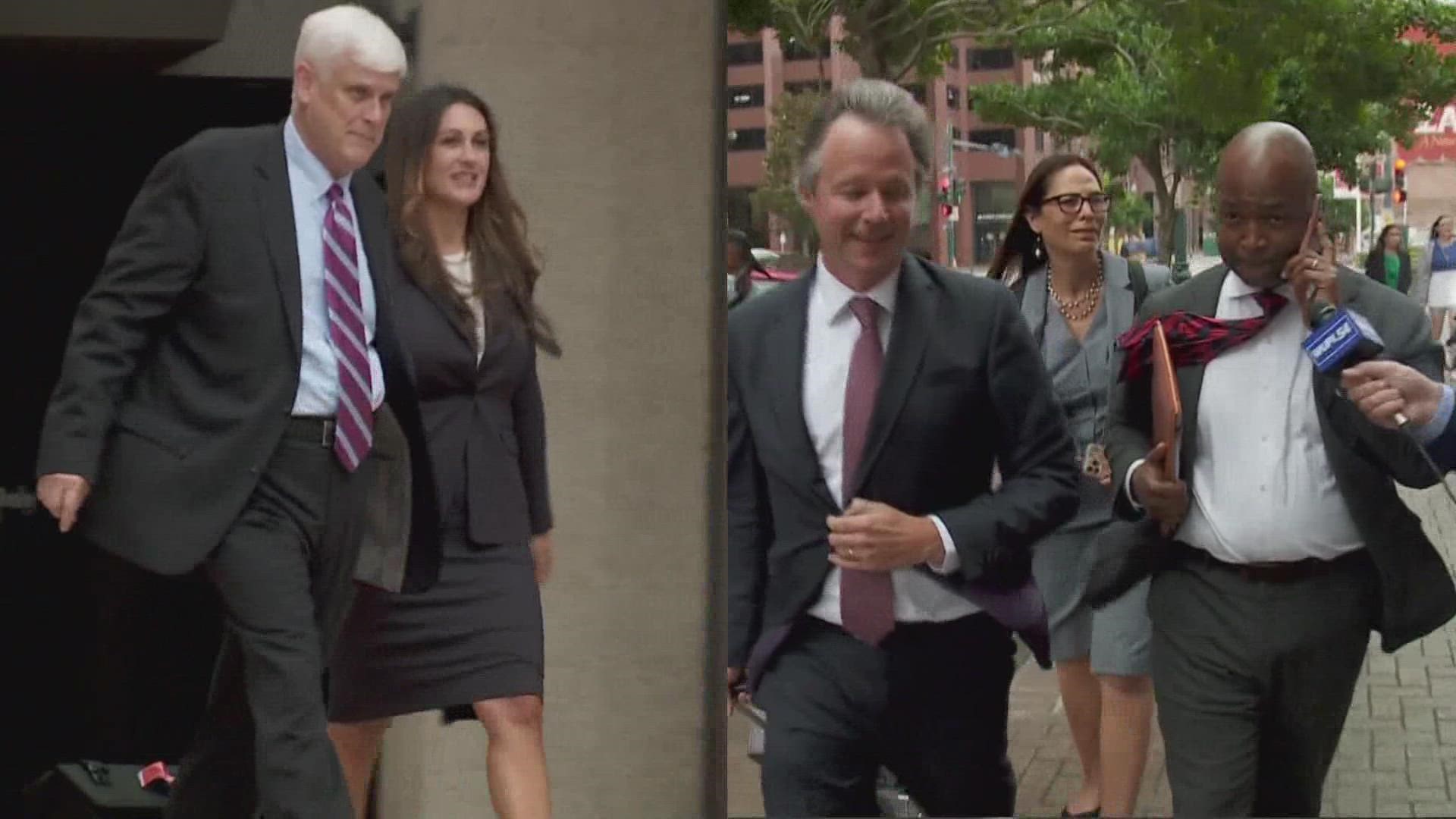NEW ORLEANS — Jurors were still unable to reach a verdict Wednesday in the federal trial of New Orleans district attorney Jason Williams, who was indicted on tax charges in 2020 — months before he won an election to become the city's top prosecutor.
The Jury has now gone through a day and a half of deliberations with no verdict. They are expected to come back at 8:30 a.m. Thursday morning.
Attorney Harry Rosenburg told WWL-TV that the lack of verdict after multiple days of deliberation does not reflect the likelihood of the defendants being found guilty or innocent. Rather, it merely reflects the time-consuming process of deciding verdicts on double-digit counts for both defendants.
Williams and Nicole Burdett, who was an attorney in his law practice, were accused in an indictment of conspiring to cheat on Williams’ taxes during a five-year period ending in 2017. Prosecutors said Williams' tax burden was illegally cut by $200,000.
Prosecutors rested their case Tuesday morning, a week after the trial began. Jurors heard from prosecution witnesses including the tax preparer, Henry Timothy, who was cooperating with prosecutors after pleading guilty to a single tax charge.
The defense rested Tuesday morning as well, without calling witnesses. Williams has long contended that the prosecution was politically motivated. Defense attorneys have portrayed Timothy as a fraud while attacking his credibility, and questioned why others whose taxes were prepared by Timothy weren't criminally prosecuted.
During closing arguments, defense attorney Mike Magner pointed to the man who prepared Williams' and Burdett's taxes, Henry Timothy, as the man who bears responsibility.
Calling him a "bad guy" and even a "sociopath", Magner told jurors Timothy is to blame for what prosecutors say is more than $760,000 in illegal expenses, like clothing and music services, Williams filed on his law firm's tax returns.
Lead prosecutor Kelly Uebinger told jurors there's no way Williams or Burdett knew nothing about what Timothy was doing.
"Mr. Timothy didn't do these things without their knowledge year after year. They knew who they were dealing with, that's why they picked him,” said Uebinger.
Williams and Burdett each faced a count of conspiracy to defraud the United States, five counts involving preparation of fraudulent returns and four counts of failing to file forms regarding large cash transactions. In addition to a possible prison sentence, Williams would face automatic suspension from his elective post if convicted of a felony, under state law.
Jurors are now tasked with going through each count to decide whether there was a conspiracy to commit tax fraud, an intent to falsify taxes, and whether cash payments were intentionally not reported.
Williams was a criminal defense lawyer and member of the New Orleans City Council before he became district attorney. On the council, he was a frequent critic of the hardball prosecution methods of his predecessor, Leon Cannizzaro.
Federal authorities had already filed the tax charges against Williams when he signed up to run for Cannizzaro's seat in July 2020. Cannizzaro opted not run for a third term and Williams was the eventual victor in a field that included two city judges.
He has won praise from many of the criminal justice reform advocates who helped elect him for efforts to review cases for possible wrongful convictions, and for taking a new look at felony convictions based on 10-2 or 11-1 verdicts. Such non-unanimous verdicts are now illegal in Louisiana.
But he has been criticized from various fronts as a pandemic-era violent crime wave has plagued the city. He was accused of going back on a campaign promise when he announced that two 15-year-olds would be charged as adults in a highly publicized homicide case.
Other critics have blasted his prohibition on using habitual offender charges to get longer sentences for people convicted; and, in the first months of his administration, missing deadlines to charge offenders, leading to their release.
► Get breaking news from your neighborhood delivered directly to you by downloading the new FREE WWL-TV News app now in the IOS App Store or Google Play.
The Associated Press contributed to this report.

